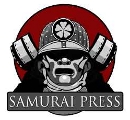Action Movies and Action Writers
I enjoy watching old action movies from the 1970s. They remind me of my childhood. My father had many favorites from the 1970s and would record them all on our VCR. He built a tremendous indexed and cataloged library of action films gleaned from HBO, Cinemax, and Showtime. I spent many hours working my way through those movies, sometimes on his recommendations, and sometimes simply from curiosity.
We watched many old movies while in the same room together. I won’t same we watched them together; I was always doing something else, like drawing or sculpting (childhood interests that eventually gave way to writing). He was frequently doing something related to his work in management for a manufacturing firm or, later in my childhood, things to do with his technical writing business.
It was those old movies — and my father’s commentary on them, spoken with the voice of experience from his reclining chair — that taught me about narrative, about story. I still remember my amazement when my father predicted what would happen in the scenes to come. I would accuse him of having seen the movie before; he would deny it. He would explain that there were no new plots, and that some were more predictable than others.
I can’t watch an action movie today, especially one of those old 1970s or early 1980s films, without thinking of my father and without remembering what he (and they) taught me about writing stories. Every time I watch The Eiger Sanction or the original version of The Taking of Pelham 123, I hear Dad’s voice telling me what’s going to happen next.
Plot is plot. I can’t simply absorb a plot; I have to analyze it and wonder if I might borrow from it. For a writer, this is an occupational hazard. For someone who spent his childhood watching action movies and reading action novels, this is inevitable.

